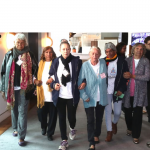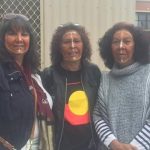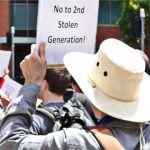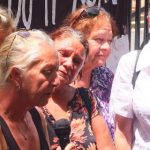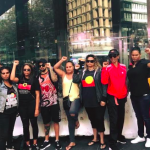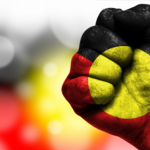New Adoption Laws Will Intensify Stolen Generation in NSW
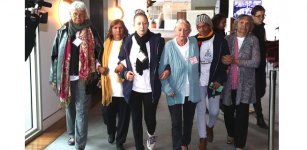
Currently, there’s an amendment bill before the NSW upper house that if passed would place a two year limit on the amount of time a child can remain in out-of-home care prior to the court having the power to order they be adopted.
These laws are set to disproportionately affect Aboriginal communities that are facing a system that’s increasingly removing their children. First Nations children and youths make up only 5 percent of people in this state under 18, but 37 percent of young people in out-of-home care.
The 2018 Productivity Commission report outlines that in June last year there were 17,664 Indigenous children in out-of-home care nationally. And NSW had the highest rate with 6,824 Aboriginal kids removed from their families at the time.
First Nations groups have long asserted that current Indigenous child removal practices are a continuation of the paternalistic policies that saw hundreds of thousands of children taken during the 70-odd years of the Stolen Generations.
And these proposed new laws are just more of the same. The Children and Young Persons (Care and Protection) Amendment Bill 2018 (the Amendment Bill) makes changes to the Children and Young Persons (Care and Protection) Act 1998 (the Care Act) and the Adoption Act 2000.
Not only does the legislation place an extremely tight maximum time frame on families seeking restoration with their children, but it also seeks to remove the judicial oversight of guardianship arrangements and it restrict provisions around parents applying for variations of court orders.
An unrealistic time limit
“This is going to totally annihilate Aboriginal culture,” said Aunty Hazel Collins, a founding member of Grandmothers Against Removals (GMAR). “This is genocide in the first degree and it should be abolished.”
In 2014, GMAR formed in the town of Gunnedah to advocate for an end to the NSW Department of Family and Community Services (FACS) child removal policy. And the group drew national attention to the ongoing stolen generation via a national day of action on National Sorry Day that year.
“The current law of adoption should be abolished, let alone, putting this hurry up time frame of two years on it,” Aunty Hazel told Sydney Criminal Lawyers®. “It’s unrealistic.”
And the Gomeroi woman understands all too well how unreasonable the proposed new forced adoption time limit is. “My own daughter fought for seven years to have her child returned,” Aunty Hazel explained. “Families are not going to get their children back within two years.”
“Nobody has the right to sign off on an adoption, when that child is not an orphan,” she added. “That child has parents, grandparents and family that want them back.”
The proposed new laws
The Amendment Bill would insert new subsections 79(9) and (10) into the Care Act, which would provide that a decision on whether there’s a “realistic possibility of restoration” must be made within 24 months, otherwise adoption or permanent guardianship should be considered.
The new legislation would also amend section 38 of the Care Act, so that the Children’s Court was no longer required to make a ruling on whether there was a realistic possibility of the restoration of a child with their family prior to a guardianship order being made.
A guardianship order provides an individual with parental responsibility of a child until they reach 18 years of age. GMAR explains that this amendment decreases safeguards protecting children’s interests and increases the power imbalance between parents and child protection services.
Section 90 of the Care Act allows families to apply for a child’s care order to be varied or revoked. The Amendment Bill would make changes so that the court could now dismiss an application if it was deemed to be frivolous, vexatious, an abuse of process or one of a series unsuccessful applications.
Currently, section 67 of the Adoption Act allows the Supreme Court to dispense with the need for the consent from a parent or person with parental responsibility, when an application for adoption is made by an authorised carer. The Amendment Bill would extend this to apply to a child’s guardian.
A damning review
“Given the fact that the department itself is dysfunctional,” Aunty Hazel continued. “There’s no way in the world that they’re going to be able to get it together to allow families to get their children back” within the new 24 month time frame.
Ms Collins was referring to the findings of the Independent Review of Out-Of-Home Care in NSW report, which NSW family and community services minister Pru Goward stalled the release of for 18 months.
The damning report found that the NSW out-of-home care system “does not improve outcomes for children and families with complex needs”. And the $1.86 billion spent over 2015-16 was “crisis driven” expenditure and “not well aligned to the evidence”.
Under taken by former senior public servant David Tune, the report also found that Aboriginal children are overrepresented in the system. It revealed that around 7.5 percent of Aboriginal children in this state were in out-of-home care with only 1 percent of non-Indigenous kids.
Following the release of the report last June, Ms Goward rejected calls for the establishment of an Aboriginal child and family commissioner. “We’re not creating a separate system for Aboriginal children,” the minister told ABC radio.
However, as far as First Nations groups like GMAR are concerned, there’s already a separate system in place for Indigenous children under the guidance of FACS and it was implemented a very long time ago.
A further erosion of rights
GMAR, along with the Aboriginal Legal Service and NSW Greens MLC David Shoebridge gathered outside NSW parliament on Wednesday morning to protest the proposed legislation that’s set to go before the parliament for the final time next Tuesday.
And as Ms Collins had urged, many non-Indigenous members of the community also attended the rally to protest against the legislation that lawyers representing vulnerable families have condemned as eroding the rights of all birth parents in NSW in a greater push towards adoption.
“There are non-Aboriginal children out there in out-of-home care that have a right to come home too,” Aunty Hazel concluded.


